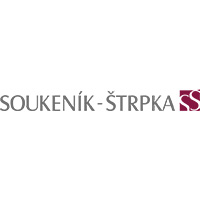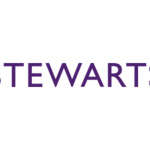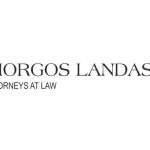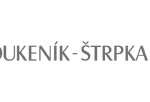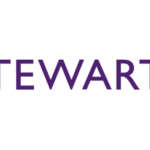It is a rule rather than an exception that the parties in significant arbitration proceedings present their case also by expert reports produced by party-appointed experts. However, such taking of expert evidence is frequently associated with unsolicited increase of time and costs in arbitration. SOUKENÍK – ŠTRPKA give their insights
Negative aspects of party-appointed experts may be prevented or mitigated by adoption of effective procedural measures.
Within this article, Slovak law firm SOUKENÍK – ŠTRPKA gives a closer view on mutual meetings of party-appointed experts as a procedural tool, which may assist the parties and the arbitral tribunal in saving time and costs when taking expert evidence.
Two experts, hundreds of views
When both parties appoint experts of the like discipline, these experts start to familiarise themselves with the case separately based on available scope and content of instructions, information and documents provided by the parties.
Although both party-appointed experts of the like discipline form their initial opinions on certain factual and expert matters individually, it is not uncommon that certain views of the experts would be aligned despite the fact that the experts were instructed by different parties of the dispute.
Unless the party-appointed expert is not aware of the position of the expert appointed by the counterparty on a certain matter, such expert would be obliged to deeply consider and explain all of the issues associated with expert discipline. Such a situation is ineffective and undesirable, as an expert cannot focus more on matters which are indeed contentious between the experts.
Therefore, in each arbitration with the presence of party-appointed experts, it should be duly considered, whether an early mutual experts’ meeting associated with production of joint expert statement would have the potential to narrow the uncontentious issues between party-appointed experts and consequently result in the saving of time and costs for taking of expert evidence.
Preparation makes perfect
Parties and their legal representatives should always identify appropriate experts for their case in the early stage of a dispute and provide appointed experts with information, relevant documents and reasonable instructions as soon as possible. Otherwise there would be a threat that discussions would be ineffective or unfavourable due to a shortage of the expert’s time for preparation for joint meeting with the expert appointed by the counterparty.
Discussions between experts
Identification of issues to be resolved by agreement between party-appointed experts is widely recognised between arbitration practitioners as an effective case management technique.
Joint meetings between party-appointed experts are a field for reaching agreement between experts over certain matters which fall into their area of specialisation.
From our practical experience, the sooner meetings of experts take place, the more effective the discussions are.
Adoption of two (or more) rounds of early expert meetings (by agreement of the parties or instruction of arbitral tribunal within procedural order) also represents good practice which may result in increased procedural effectivity regarding expert evidence.
Meetings of experts held before the issue of expert reports are less frequent. However, a first round of expert meetings before exchange of expert reports may assist the experts in clarifying agreements and disagreements particularly in respect to the methodology, terminology and units of measurement.
Second (core) round of expert meetings should be organised after first round of exchange of written expert reports, ie, in the procedural stage when initial complex positions of experts are clarified.
Discussions between experts after exchange of initial expert reports may assist the experts to narrow the scope of contentious issues before the production of final expert reports.
Prior to the meeting of experts, several issues should be clarified:
- Format – in person/videoconference;
- Agenda – should be notified in advance (to allow the experts to appropriately prepare for effective discussions)
- List of participants – experts with/without their colleagues would attend the meeting. However, the presence of legal representatives is questionable. In the majority of arbitration cases, tribunals are of the view, that the presence of legal representatives would preclude the experts communicating without pressure. Since the role of experts is not to settle aspects of the dispute on behalf of the party of dispute and the experts shall focus on technical issues, we share the opinion that the presence of legal counsel at joint expert meetings is unnecessary, unless specific circumstances of the case require otherwise.
- Minutes of meeting – are the basis for preparation of joint statements of experts and therefore it is advised, that MoM should be prepared by a third independent party.
Joint statements of experts
Provided that the discussions of the experts were effective and the experts were able to identify the areas of their agreement and disagreement, the experts should prepare a joint statement including a list of agreed and disagreed issues.
For the sake of effectivity of future hearing, any reasons for disagreement should be justified by both experts within a joint statement.
A joint statement should be afterwards submitted to the arbitral tribunal which would assist the tribunal in becoming familiar with the list of contentious matters between the party-appointed experts and with the reasons for disagreement of the experts in certain matters.
Although joint statements of experts are in general not binding on the parties and/or their experts, it would be extremely difficult for a party or its own expert to deviate from an opinion previously expressed in a joint statement. Therefore, the time and cost-effective party-appointed expert discussions require diligent preparation and consideration of possible risks.
Selected arbitration cases
- Representing company operating in road sector in construction arbitration (2021 ICC Rules; case value: €400m; co-operation with Simmons & Simmons);
- Representing Ministry of Transport and Construction of the Slovak Republic in ICC arbitration arising from delay of the PPP project, EOT and increased costs (2017 ICC Rules; case value: €1.9bn; co-operation with Eversheds Sutherland);
- Counsel to a state-owned entity in respect to ICC arbitration arising from compensation for damage dispute (2012 ICC Rules; case value €700m);
- Counsel to the Slovak Republic in investment treaty arbitration based on a BIT, arising from the investment in the textile sector (UNCITRAL rules; case value: €290m);
- Local counsel to the major international law firm in investment treaty arbitration based on a BIT, arising from health insurance (UNCITRAL rules; case value: €1bn);
- Representing of the National Council of the Slovak Republic in six major court disputes (partially linked to investment arbitration proceedings) with foreign investors (cases value in total: €600m).
Authors
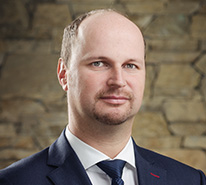
David Soukeník
Partner

Peter Štrpka
Partner

Lukáš Štefánik
Head of litigation and arbitration
Tel: +421 2 322 02 111
E-mail: akss@akss.sk







